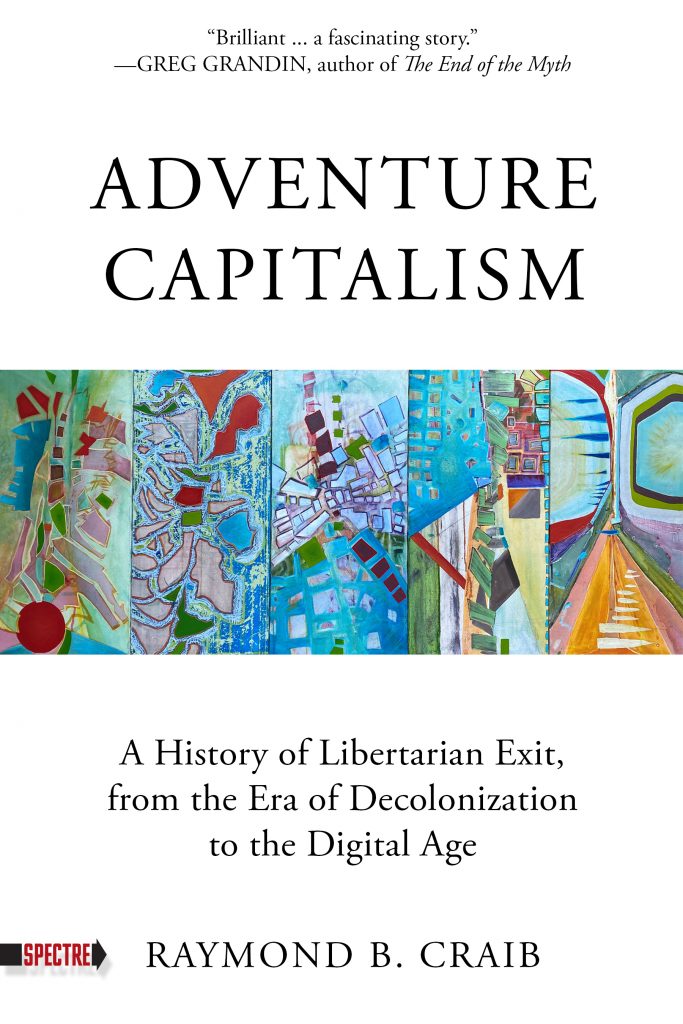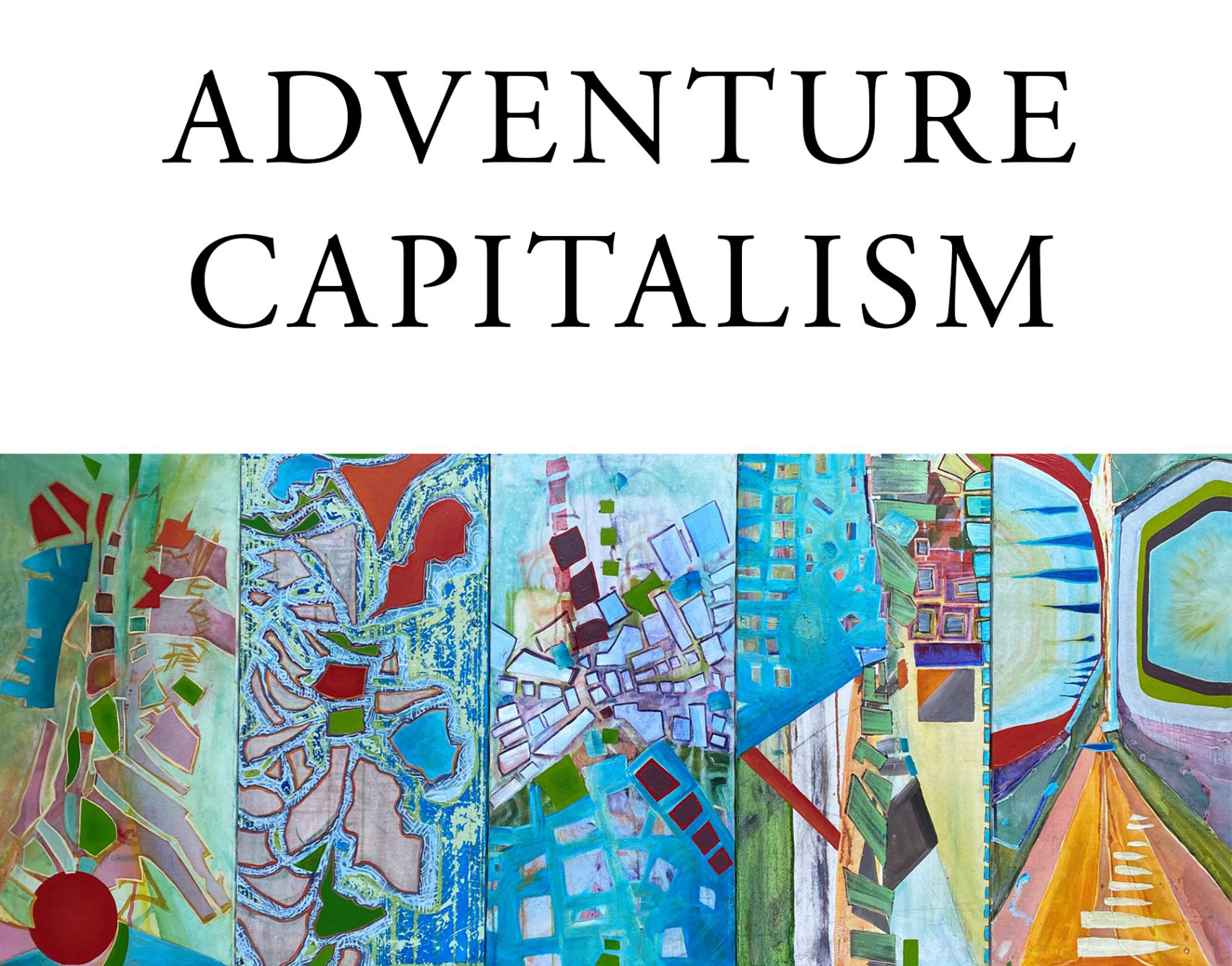Silicon Valley has always
dreamed of building its own utopias.
Who’s ready to move in?
By Kaitlyn Tiffany
The Atlantic
February 2024
The international airport serving the capital of Montenegro has only two arrival gates, and last spring they were busier than usual. I was there for the same reason many others were: The tiny Balkan state had become the unlikely center of a mostly American social and political movement.
Specifically, I had come to observe Zuzalu, a two-month coliving experiment that had been organized—and to some extent paid for—by Vitalik Buterin, a co-founder of the eco-friendly cryptocurrency ethereum. It was being hosted at a new resort and planned community on the Adriatic coast, not far from the village of Radovići. Part retreat and part conference, it was also a dry run for the more permanent relocation of tech-industry digital nomads to different parts of the world, where they could start their own societies and design them to their liking. Some 200 people had signed up for the full two months. Others, like me, popped in and out. Th e slate of talks for the days I was there was titled “New Cities and Network States.” European tourists smoked cigars on the promenade while Zuzalu attendees bounded around making plans for excursions and exercise and shuttles to a private Grimes show later on.
The network state is a concept first advanced by Balaji Srinivasan, a bitcoin advocate who is influential in tech circles. As he describes it in his book, Th e Network State, self-published in 2022 on the Fourth of July, a network state starts with an online community of like-minded people, then moves into the offline world by crowdfunding the purchase of land and inhabiting it intensively enough that “at least one pre-existing government” is moved to off er diplomatic recognition. Th ere isn’t necessarily any voting; the best way to vote is by either staying put or “exiting” for another network state you like better.
Other than that, the model is choose your own adventure. Hypothetically, Srinivasan suggests network states for people who eat specific diets (kosher, keto), for people who don’t like FDA regulation, for people who don’t like cancel culture, for people who want to live like Benedictine monks, for people who might want to limit internet use by putting public buildings in Faraday cages. It doesn’t matter what the state is based on, but it has to be based on something—a “moral innovation” or a “one commandment.”
So, in Montenegro, inside a geodesic dome, presenters gave pitches for an array of proposed societies. Th e talks were of the friendly “no bad ideas in brainstorming” variety—propositions with enormous stakes presented one after another in an hour or less. Beginning as online communities, or as “decentralized autonomous organizations,” some would be built from scratch by people with a shared cause. Others would be start-ups in a more traditional sense—instigated by founders and run like businesses.
For instance, Titus Gebel, a German entrepreneur, proposes the establishment of “free private cities,” where citizens are customers who pay only for the government services they intend to use personally. A city operator and a small governing board would make every important decision. “Th e current Western legacy systems are not reformable,” Gebel said during a presentation. “They’re not really serving people’s needs any longer.”
Later, I listened to a Q&A with Dryden Brown, the 20- something CEO and co-founder of Praxis, a venture- capitalfunded group bent on escaping American democracy and all its flaws by building a new “eternal city,” also called Praxis, somewhere in the Mediterranean region. On the internet, Brown is combative and self-aggrandizing, but in person, he has the reflexive politeness of someone who is used to older adults referring to him as a “nice young man.” When he was in his early 20s, he posted a meme on Facebook identifying himself as “fiscally conservative and socially awkward.” He’d been avoiding me in New York, but when I appeared in Montenegro, he received me with surprising warmth (“You made it!” he said, after I sneaked into the Grimes show). During his Q&A, he stuck mostly to oft-repeated talking points. His family fought in the Revolutionary War; he has wanted to start a new city since he was 15 or 16 years old; the important thing to know about Praxis is that everyone who lives
there will be amazing. “If you’re able to get the next Elon to move to the city, that’s where the returns come from,” he said. Brown acknowledged the need to “attract and retain people who have that risk tolerance, that are talented, that have that high IQ.” He said the “high IQ” part twice.
On the second day of presentations, I had lunch with a biotech investor named Sebastian Brunemeier. (But he was fasting, so we only drank water.) Brunemeier, remarkably friendly and forthcoming, is a “longevity maximalist” who co-founded a venturecapital fund in 2021 to invest in something called LongBio. Now, he explained, he’s supporting a longevity-specific network state that would advance a cause he and others call “vitalism.” Death, they argue, is an option, not an inevitability. “Th e basic premise is: Well, if life is good and health is good, death and disease are bad,” Brunemeier explained. Citizens of this network state will be free to pursue a goal of longer, healthier lives outside the reach of U.S. regulation and its byzantine restrictions on medical experimentation. (Outside the reach of the U.S. tax code, too.) To start, they’re hosting a two-month pop-up city called Vitalia on an island off Honduras.
A smattering of other network-state-inspired projects are under way. Th ere’s Itana, a new city in Nigeria marketed to entrepreneurs, which entices foreign business owners with tax incentives. Th e island off Honduras where the vitalism people are headed is home to an existing community called Pr.spera, whose settlers are already offering experimental gene therapy. Th e venture capitalist Shervin Pishevar, a co-founder of Hyperloop One, is building what he calls a “smart island,” in the Bahamas. So far it sounds like a planned community with its own airport, but Pishevar has promised that his ambitions are much larger. “One of our next projects is an island that is bigger than Manhattan,” he said at a Srinivasan-led network-state conference in Amsterdam this past October. He didn’t name the location, but said he is negotiating a “treaty, essentially,” a 99-year lease with a host government.
These projects are pitched with a sense of grandiosity and grievance: Th e twisted bureaucracy of democratic governance is constraining humanity. Decades ago, we went to the moon; why don’t we have flying cars? Centuries ago, we praised frontiersmen and pioneers; why are they vilified now? Why all this disdain for the doers and the builders? Why all this red tape in the way of the best and the brightest?
Most of these projects are not yet real to the point of treaties and cement, but they are real enough in the minds of people who wield influence in a powerful, tight-knit industry. These people are energetic, creative, and sometimes charming. And they have their hearts set on a future that belongs to them alone.
II.
Th e idea of the network state is not a totally original one. Th e United States has a long history of secessionist yearning, and the specific dream of libertarian settlements populated by Americans has been in the air since at least the 1970s, when the reactionary Nevada millionaire Michael Oliver determined that “the real cure for this country is for the productive people to leave, and let the moochers tax each other.” As recounted in Raymond B. Craib’s recent book, Adventure Capitalism,Oliver fi rst thought of building an artificial island in the South Pacific; his later schemes included invading some islands in the Bahamas and funding a right-wing separatist movement in Portugal.
Th e network-state idea also sounds a lot like the Patchwork concept proposed 15 years ago by Curtis Yarvin, a tech-world personality who is regarded as the father of neo-reactionary thought. In 2008, on his blog Unqualified Reservations, he wrote:
Th e basic idea of Patchwork is that, as the crappy governments we inherited from history are smashed, they should be replaced by a global spiderweb of tens, even hundreds, of thousands of sovereign and independent mini-countries, each governed by its own joint-stock corporation without regard to the residents’ opinions. If residents don’t like their government, they can and should move. Like much of Yarvin’s writing, this post was heavily sarcastic and full of what one would hope is hyperbole.
RECORDED ON MARCH







